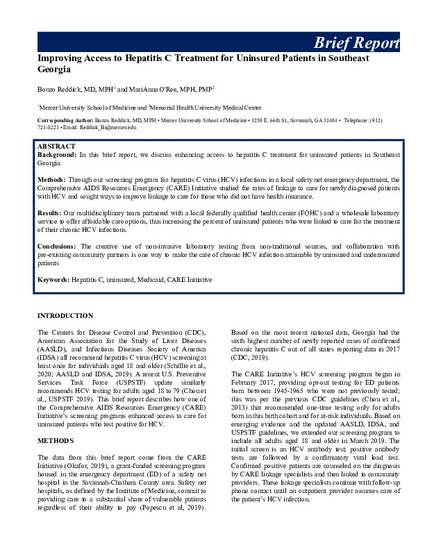
Background: In this brief report, we discuss enhancing access to hepatitis C treatment for uninsured patients in Southeast Georgia.
Methods: Through our screening program for hepatitis C virus (HCV) infections in a local safety net emergency department, the Comprehensive AIDS Resources Emergency (CARE) Initiative studied the rates of linkage to care for newly diagnosed patients with HCV and sought ways to improve linkage to care for those who did not have health insurance.
Results: Our multidisciplinary team partnered with a local federally qualified health center (FQHC) and a wholesale laboratory service to offer affordable care options, thus increasing the percent of uninsured patients who were linked to care for the treatment of their chronic HCV infections.
Conclusions: The creative use of non-invasive laboratory testing from non-traditional sources, and collaboration with pre-existing community partners is one way to make the care of chronic HCV infection attainable by uninsured and underinsured patients.
Available at: http://works.bepress.com/bonzo-reddick/7/
